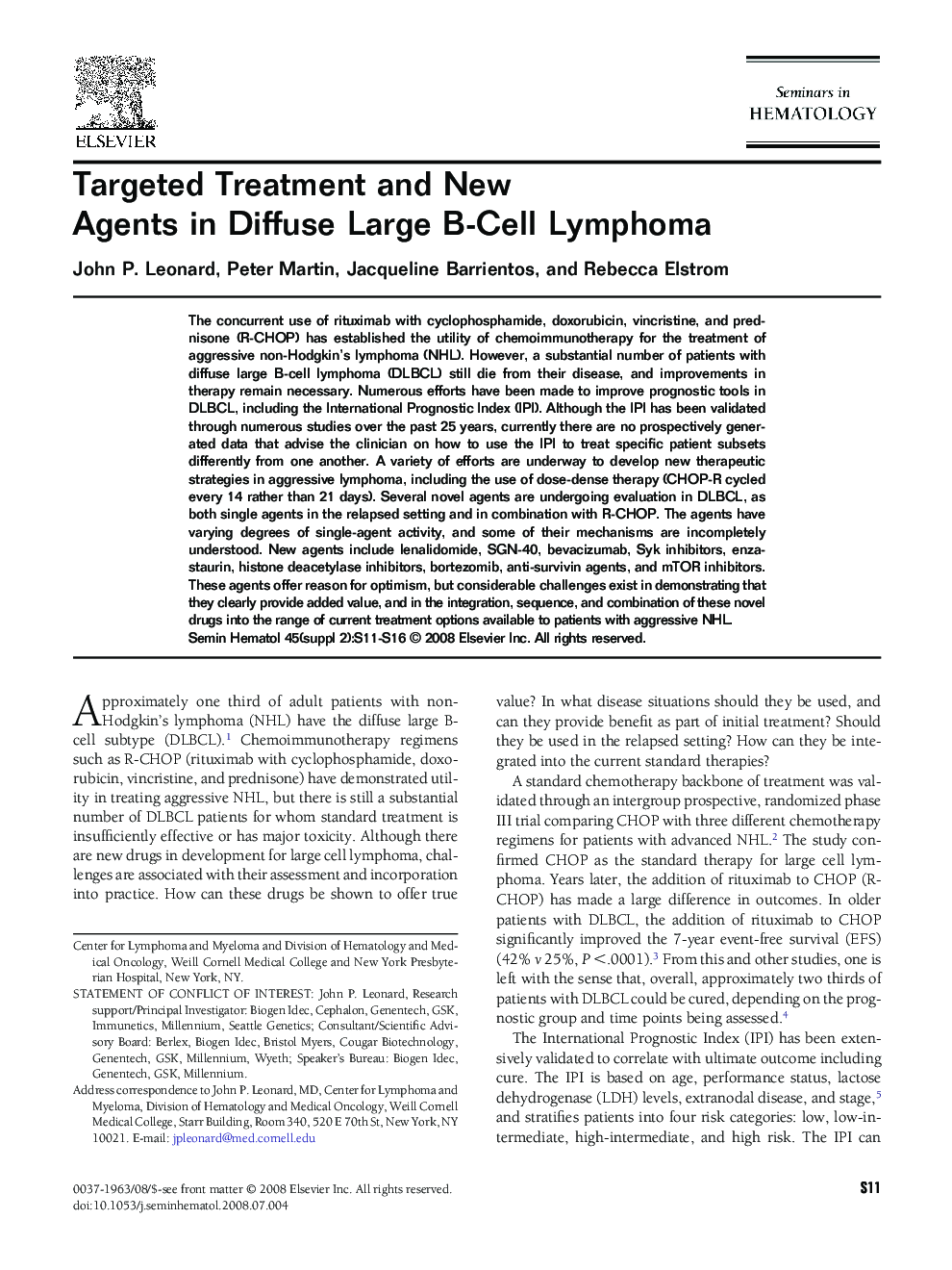| Article ID | Journal | Published Year | Pages | File Type |
|---|---|---|---|---|
| 3333862 | Seminars in Hematology | 2008 | 6 Pages |
The concurrent use of rituximab with cyclophosphamide, doxorubicin, vincristine, and prednisone (R-CHOP) has established the utility of chemoimmunotherapy for the treatment of aggressive non-Hodgkin's lymphoma (NHL). However, a substantial number of patients with diffuse large B-cell lymphoma (DLBCL) still die from their disease, and improvements in therapy remain necessary. Numerous efforts have been made to improve prognostic tools in DLBCL, including the International Prognostic Index (IPI). Although the IPI has been validated through numerous studies over the past 25 years, currently there are no prospectively generated data that advise the clinician on how to use the IPI to treat specific patient subsets differently from one another. A variety of efforts are underway to develop new therapeutic strategies in aggressive lymphoma, including the use of dose-dense therapy (CHOP-R cycled every 14 rather than 21 days). Several novel agents are undergoing evaluation in DLBCL, as both single agents in the relapsed setting and in combination with R-CHOP. The agents have varying degrees of single-agent activity, and some of their mechanisms are incompletely understood. New agents include lenalidomide, SGN-40, bevacizumab, Syk inhibitors, enzastaurin, histone deacetylase inhibitors, bortezomib, anti-survivin agents, and mTOR inhibitors. These agents offer reason for optimism, but considerable challenges exist in demonstrating that they clearly provide added value, and in the integration, sequence, and combination of these novel drugs into the range of current treatment options available to patients with aggressive NHL.
